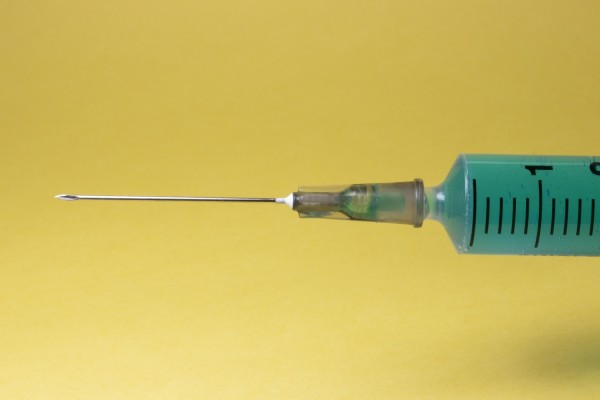Pfizer's COVID-19 Vaccine: Why It Needs To Be Kept Beyond Freezing Point?
Amid COVID-19 vaccine trials, two vaccine candidates showed high efficacy to coronavirus and served as a gleam of hope in ending the pandemic across the United States and globally. Pfizer's COVID-19 vaccine showed 90% effectiveness, while the Moderna vaccine has 94.5% efficacy. Surprising, isn't it? While these results made a major uproar these past few days, and everyone is waiting for the U.S. Food and Drug Administration's authorization, dispensing them can be challenging.

ALSO READ: COVID-19 Vaccine Could Be a Logistical Nightmare
Pfizer's vaccine requires being in extreme cold at minus seventy degrees Celsius, which way beyond the freezing point of water and even colder than Antarctica's winters. On the other hand, Moderna also required their vaccine to be kept in a freezer but with only minus 20 degrees Celsius temperature. Still cold beyond a freezing point but way hotter than minus seventy degrees.
According to National Public Radio (NPR), since the number of the vaccine will be limited at first, immunization managers across the United States should be prepared and have plans for the distribution of all the vaccine doses available. In an interview with NPR, 30-year veteran vaccine innovation and supply chains at Seattle-based PATH, an international non-profit focused on public health, Debra Kristensen is very positive about the issue. In the interview, she said that the extreme cold temperature requirements are possible because the Ebola vaccine was successfully used in some African countries requiring ultra-large storage. She added that it is going to be more expensive and more challenging.
In response to the dilemma, NPR mentioned that Pfizer designed their packaging in keeping their vaccines super cold with dry ice, for them to be stored for a few weeks without specialized freezers.
READ ALSO: Pfizer Says Success of its COVID-19 Vaccine Trial Signals Breakthrough in Battle Against the Virus
Why do they need freezers that cold?
Sufficient cold is needed by the vaccine for them to work efficiently. According to NPR, Moderna and Pfizer's vaccines use a new approach in unlocking the body's immune system. They added that this method uses RNA and mRNA in making patient's cells into factories that produce once specific COVID-19 protein. They further said that the protein will trigger immune response because it will make it look like there is a real infection but not to the point that it will make the individual sick. After all, there is only one virus protein.
In an interview with NPR, chair of the International Society for Vaccines and vaccine researcher Margaret Liu said that mRNA vaccine could be made much faster than the older vaccines. Still, she added that mRNA could be easily destroyed because of the many enzymes. In the interview, Liu compared the vaccine to a chocolate bar where it melts easily. To avoid this, she explained to NPR that they used modified versions of mRNA nucleosides because they are even more stable. She further said that the next step is to use lipid nanoparticles, which she explains as putting chocolate inside a candy coating. She stressed that the vaccine needs to be frozen because, according to her, the vaccine can still be destroyed even with lipid nanoparticles, and cold temperatures slow down the process.
READ NEXT: Australian Biotech Company Claims Its Nasal Spray Reduced Growth of COVID-19 in Animal Study
Check out more news and information on COVID-19 on MD News Daily.
Nov 18, 2020 06:00 AM EST





